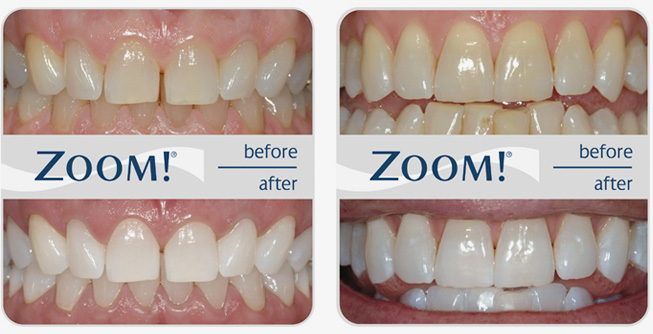Can You Use Too Much Mouthwash?
October 6th, 2016
 Everyone wants to maintain a healthy mouth with minty fresh breath. But if you use too much mouthwash, you might not get the intended results. Studies have shown that when it comes to mouthwash, there can be too much of a good thing.
Everyone wants to maintain a healthy mouth with minty fresh breath. But if you use too much mouthwash, you might not get the intended results. Studies have shown that when it comes to mouthwash, there can be too much of a good thing.
How Much is Too Much?
Dentists often recommend mouthwash as part of a healthy oral hygiene routine. A study of 4,000 people conducted by the University of Glasgow in Scotland found that people who used antibacterial mouthwash more than three times a day had an increased risk of developing mouth and throat cancers. Some dentists also feel that certain types of mouthwash are too harsh and should never be used.
The Consequences of Using Too Much Mouthwash
The Glasgow study showed that excessive use of mouthwash – three or more times a day – correlated with an increased risk of certain oral cancers; that doesn't necessarily mean, however, that using too much mouthwash automatically causes cancer.
People who frequently use mouthwash to clean their mouths and teeth may be at a higher risk for some oral cancers because of poor overall oral hygiene. Some may rely on mouthwash to cover up odors from unhealthy habits such as smoking, chewing tobacco or drinking alcohol, behaviors that are already damaging to the teeth and gums as well as the overall mouth health.
Others may use mouthwash or an oral rinse as a substitute for routine brushing, flossing, and dental visits. While mouthwash can be an occasional “quick fix” to kill bacteria and freshen breath, everyone – particularly those who smoke or drink alcohol – still needs to follow a routine of daily brushing and flossing.
Mouthwashes that are alcohol-based can be dangerous in any quantity because the alcohol destroys the natural mucous in the mouth that should shield and protect the mouth from cancer-causing irritants. Without the natural mucous barrier, a person’s risk of developing oral cancer rises.
A smoker, for example, is already at an increased risk of certain types of cancer. If that person also regularly uses an alcohol-based mouthwash to rinse after smoking, he is repeatedly rinsing out the protective mucous, eliminating the body’s natural defense mechanism and further increasing the risk of developing cancer.
Another problem with using too much mouthwash is that many of the “bad” bacteria are found beneath the gum line, and a quick rinse with an alcohol-based mouthwash will usually only kill the “good” bacteria in the mouth without affecting the potentially dangerous bacteria below. When the good bacteria are gone, the mouth becomes even more susceptible to infections as the harmful elements are allowed to grow unchecked.
Rinsing with an alcohol-based mouthwash eliminates the protective properties of the mouth’s natural mucous production and can also cause the mouth to feel dry. Dry mouth can lead to more bad breath, causing people to reach for more mouthwash. It’s a cycle that, combined with other poor hygiene habits, can put people at a high risk for oral cancers.
How to Properly Use Mouthwash
Dentist recommendations on the use of mouthwash vary based on the dentist and the patient. Those who choose to use mouthwash as part of their oral hygiene regimen should choose a gentler rinse that does not contain alcohol and follow the instructions on the label.
A general rule of thumb for safe use is to limit the use of mouthwash to one time per day, in conjunction with brushing the teeth and flossing two to three times per day and visiting the dentist one to two times per year for routine oral health exams and screenings for oral cancers.
Worried your mouthwash is doing more harm than good? Make an appointment to visit Water Tower Dental Care today! We can take a look at your mouth and recommend a safe mouthwash based on your needs, whether you have a sensitive mouth or need more aggressive care.

 Flossing has been making headlines recently thanks to the U.S. departments of Health and Human Services Agriculture’s Dietary Guidelines for Americans. The most recently released guidelines did not include flossing, which was once a recommended activity for daily health. But does this mean
Flossing has been making headlines recently thanks to the U.S. departments of Health and Human Services Agriculture’s Dietary Guidelines for Americans. The most recently released guidelines did not include flossing, which was once a recommended activity for daily health. But does this mean  Food products like garlic and onion are known to cause
Food products like garlic and onion are known to cause  When it comes to taking care of your teeth, there’s a lot more you can do than just brushing and flossing. In fact, those are just the first two steps to keeping your teeth healthy. Adding oral probiotics to your teeth-cleaning routine will help to ensure that you keep cavities away and an attractive smile going.
When it comes to taking care of your teeth, there’s a lot more you can do than just brushing and flossing. In fact, those are just the first two steps to keeping your teeth healthy. Adding oral probiotics to your teeth-cleaning routine will help to ensure that you keep cavities away and an attractive smile going. When it comes to mouths, people typically care most about their teeth. But your gums are just as important as your pearly whites. Gums hold your teeth together, keep them protected from bacteria, can give you bad breath, and
When it comes to mouths, people typically care most about their teeth. But your gums are just as important as your pearly whites. Gums hold your teeth together, keep them protected from bacteria, can give you bad breath, and  Bad breath doesn’t just ruin dates. It can also be a problem that embarrasses you every time you open your mouth to talk to someone. Worst of all, a surprising number of people suffer from bad breath, even if they practice proper oral hygiene.
Bad breath doesn’t just ruin dates. It can also be a problem that embarrasses you every time you open your mouth to talk to someone. Worst of all, a surprising number of people suffer from bad breath, even if they practice proper oral hygiene. You may have heard of the many health benefits of tea, but did you know tea is really good for your teeth as well? Both black and green tea contain catechins, also known as antioxidants, which help remove harmful bacteria from your mouth.
You may have heard of the many health benefits of tea, but did you know tea is really good for your teeth as well? Both black and green tea contain catechins, also known as antioxidants, which help remove harmful bacteria from your mouth.

 We all hate dealing with bad breath. Whether it’s our own or someone else’s, it’s never a fun experience. And even though you may brush, floss, and use mouthwash everyday, you still find that your breath can become rather nasty by the end of the day (or less fortunately, the middle). Great oral hygiene is a start to combating bad breath, however, sometimes our bad breath is directly related to the food we do (and don’t) eat. There are plenty of foods that cause bad breath, and some that help fight the awful smells. Here’s our list of the top foods for each.
We all hate dealing with bad breath. Whether it’s our own or someone else’s, it’s never a fun experience. And even though you may brush, floss, and use mouthwash everyday, you still find that your breath can become rather nasty by the end of the day (or less fortunately, the middle). Great oral hygiene is a start to combating bad breath, however, sometimes our bad breath is directly related to the food we do (and don’t) eat. There are plenty of foods that cause bad breath, and some that help fight the awful smells. Here’s our list of the top foods for each. A large percentage of Americans suffer from bad breath. While good oral hygiene can help keep bad breath at bay, sometimes a mouth needs to take further measures to help keep it from smelling too bad. Today we'd like to discuss a few natural ways to help reduce bad smelling breath.
A large percentage of Americans suffer from bad breath. While good oral hygiene can help keep bad breath at bay, sometimes a mouth needs to take further measures to help keep it from smelling too bad. Today we'd like to discuss a few natural ways to help reduce bad smelling breath. Like a majority of Americans waking up early and setting off to work every morning, we enjoy a good cup of coffee to help wake us up. That shot of caffeine helps us get moving at the beginning of our day and keeps us on our toes through the afternoon. With almost daily consumption of coffee though, many of our patients ask if it's bad for their teeth. This is a hard question to answer, mostly because we enjoy drinking coffee just as much as the next person, so telling our patients that it's bad for them would make us feel just as guilty for drinking it! However, joking aside, coffee isn't the best drink for your teeth, however it's not the worst. Let's explain.
Like a majority of Americans waking up early and setting off to work every morning, we enjoy a good cup of coffee to help wake us up. That shot of caffeine helps us get moving at the beginning of our day and keeps us on our toes through the afternoon. With almost daily consumption of coffee though, many of our patients ask if it's bad for their teeth. This is a hard question to answer, mostly because we enjoy drinking coffee just as much as the next person, so telling our patients that it's bad for them would make us feel just as guilty for drinking it! However, joking aside, coffee isn't the best drink for your teeth, however it's not the worst. Let's explain.





 Website Powered by Sesame 24-7™
Website Powered by Sesame 24-7™